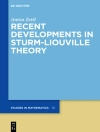Computational complexity is a serious bottleneck for the design process in virtually any engineering area. While migration from prototyping and experimental-based design validation to verification using computer simulation models is inevitable and has a number of advantages, high computational costs of accurate, high-fidelity simulations can be a major issue that slows down the development of computer-aided design methodologies, particularly those exploiting automated design improvement procedures, e.g., numerical optimization. The continuous increase of available computational resources does not always translate into shortening of the design cycle because of the growing demand for higher accuracy and necessity to simulate larger and more complex systems. Accurate simulation of a single design of a given system may be as long as several hours, days or even weeks, which often makes design automation using conventional methods impractical or even prohibitive. Additional problems include numerical noise often present in the simulation data, possible presence of multiple locally optimum designs, as well as multiple conflicting objectives. In this edited book, various techniques that can alleviate solving computationally expensive engineering design problems are presented. One of the most promising approaches is the use of fast replacement models, so-called surrogates, that reliably represent the expensive, simulation-based model of the system/device of interest but they are much cheaper and analytically tractable. Here, a group of international experts summarize recent developments in the area and demonstrate applications in various disciplines of engineering and science. The main purpose of the work is to provide the basic concepts and formulations of the surrogate-based modeling and optimization paradigm, as well as discuss relevant modeling techniques, optimization algorithms and design procedures. Therefore, this book should be useful to researchers and engineers from any discipline where computationally heavy simulations are used on daily basis in the design process.
Cuprins
Surrogate-based and One-shot Optimization Methods for PDE-constrained Problems with an Application in Climate Models.- Shape-Preserving Response Prediction for Surrogate Modeling and Engineering Design Optimization.- Nested Space Mapping Technique for Design and Optimization of Complex Microwave Structures with Enhanced Functionality.- Automated Low-Fidelity Model Setup for Surrogate-Based Aerodynamic Optimization.- Design Space Reduction for Expedited Multi-Objective Design Optimization of Antennas in Highly-Dimensional Spaces.- Numerically Efficient Approach to Simulation Driven Design of Planar Microstrip Antenna Arrays By Means of Surrogate-Based Optimization.- Optimal Design of Computationally Expensive EM-Based Systems: A Surrogate-Based Approach.- Atomistic Surrogate-Based Optimization for Simulation-Driven Design of Computationally Expensive Microwave Circuits with Compact Footprints.- Knowledge Based 3-Step Modeling Strategy Exploiting Artificial Neural Network.- Large-Scale Global Optimization via Swarm Intelligence.- Evolutionary Clustering for Synthetic Aperture Radar Images.- Automated Classification of Airborne Laser Scanning Point Clouds.- A Novel Approach to the Common Due-Date Problem on Single and Parallel Machines.- On Gaussian Processes for NARX Modelling and Their Associated Higher-order Frequency Response Functions.












